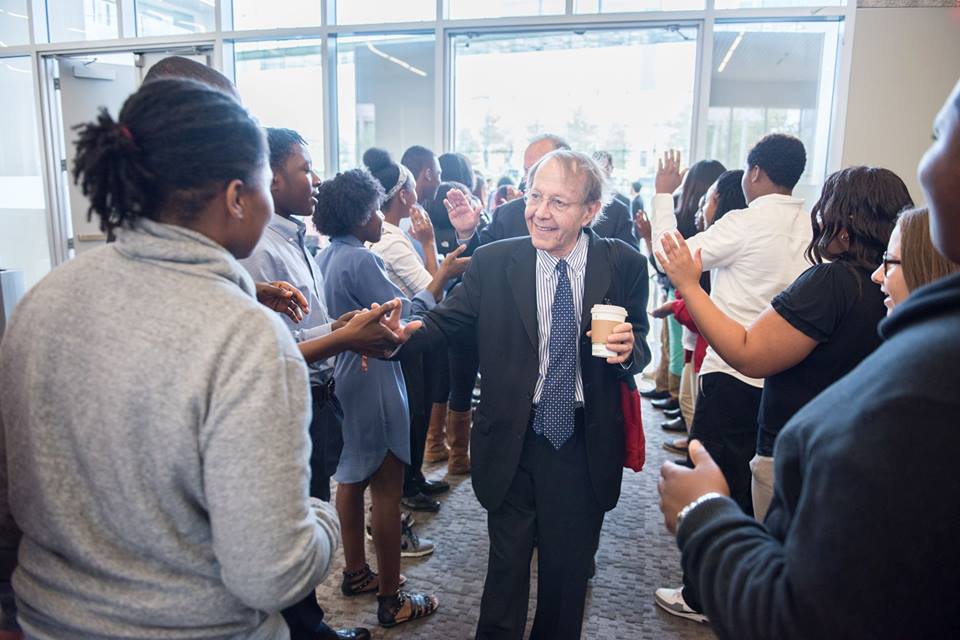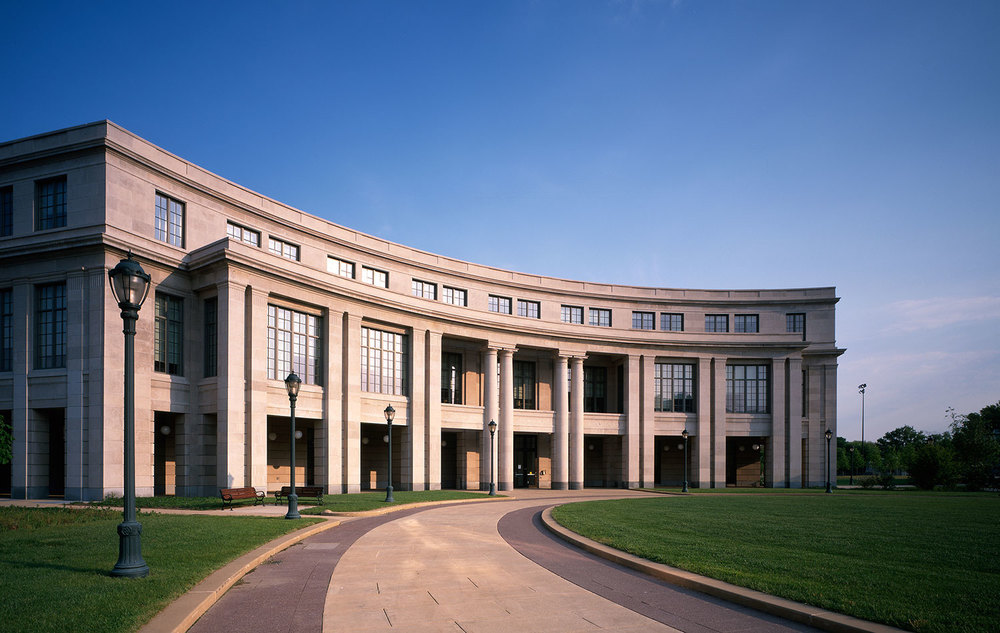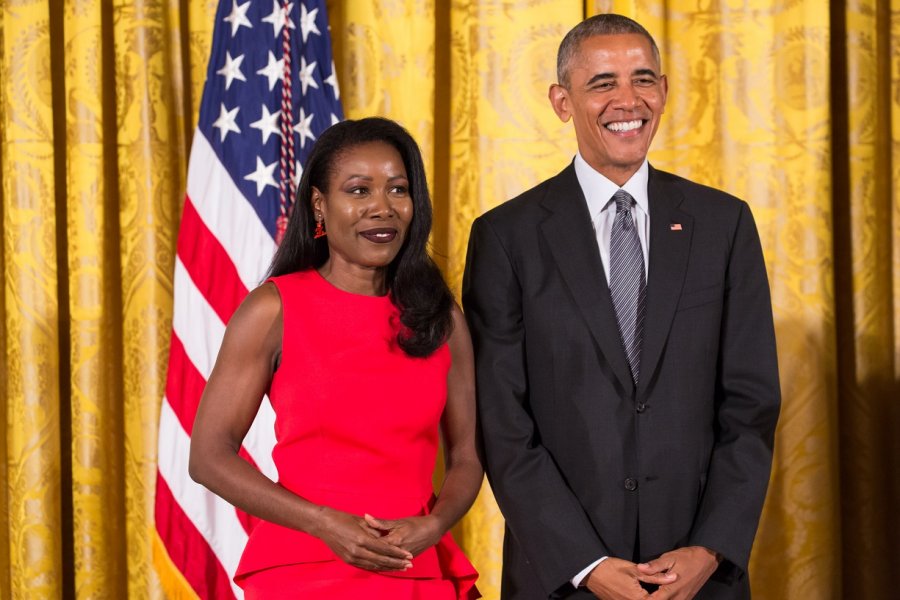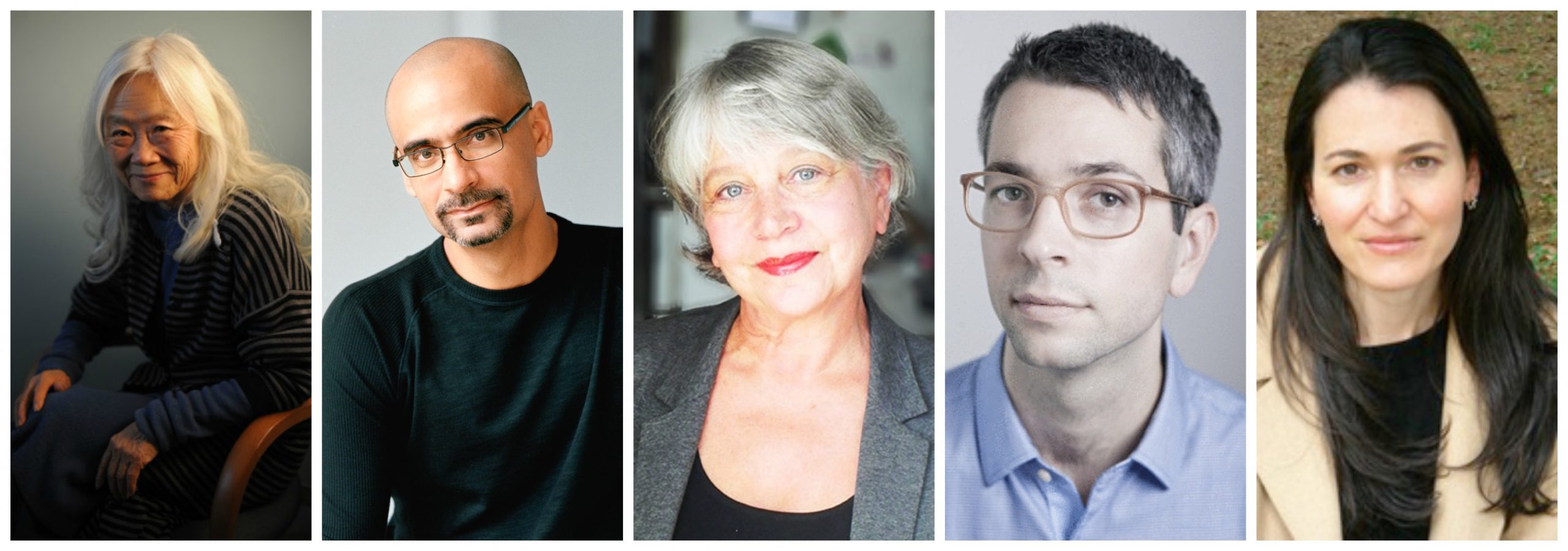As I approached the ballroom of the Cleveland Convention Center to reach the Open Doors Academy luncheon, I heard a commotion that seemed a bit out of place–more like a pep rally. Students flanked both sides of entrance to the ballroom, arms outstretched, giving enthusiastic high-fives to each guest. “No one asked them to do that,” executive director Annmarie Grassi shared with the audience. “That enthusiasm is all their own.”
More than 500 attendees filled the ballroom to support Open Doors Academy, a 13-year-old enrichment and leadership nonprofit serving some 400 students in Northeast Ohio. These students, buoyed by academic tutoring, volunteer projects and summer camps, boast a 100 percent high school graduation rate and 97 percent of participants pursue post-secondary education.
These are astounding and encouraging numbers when nearly 90% of the students enrolled in programming live below the poverty line. It is a population that writer Jonathon Kozol, keynote speaker for the event, knows well.
With his sleeves rolled up and blue sneakers on his feet, Kozol, 79, looked like a man of action. For the past five decades, Kozol has become known as one of the most respected education writers in America, with 13 books investigating America’s racial and class disparities both inside the classroom and out. He won the Anisfield-Wolf book award for nonfiction in 1996 for Amazing Grace: The Lives of Children and the Conscience of a Nation, a 300-page treatise on living conditions of poor children in the South Bronx.
“Why did I give a book about destitute children that optimistic title?” he shared. “Here’s why: because in the midst of all the desolation in which those children lived, I came upon a little miracle: a beautiful afterschool program in a small Episcopal church called St. Ann’s.” This program, he noted, was not unlike the origins of Open Doors Academy, which got its unofficial start as a drop-in program at a Cleveland Heights church.
After graduating from Harvard University in 1958, Kozol began teaching in the Boston Public Schools, where he was later fired for teaching a Langston Hughes poem. He moved on to another district, before shifting his attention to writing about his pupils, the young men and women living in the poorest, most segregated cities in the country. Cleveland, unfortunately, bears striking resemblance to the South Bronx.
“As central cities start to shine again…it is very easy to lose sight of those we left behind. Fifty-four percent of children in this city live in poverty,” Kozol told the crowd, as a recent U.S. Census Bureau report now puts that number closer to 60 percent.
The gulf between adequately funded schools and its struggling counterparts is getting wider, Kozol said, thanks in part to “pathological” testing standards that are driving out good teachers in schools that need them most. Whereas wealthier parents feel empowered to opt out of testing, lower-income families hesitate to make such a move.
“Critical thinking is flourishing still in top suburban high schools, schools that have plenty of money,” Kozol said. “Well-educated parents in those districts want their kids to grow up with the ability to ask discerning questions, to interrogate reality so that in their adult lives they can take a real role in the workings of democracy and they can help shape the future of our nation. It’s less common in the inner-city schools, especially in the schools that serve the black and brown and very poor. Poverty is not the only issue at stake here.”
Education analysts have projected more than 2 million teachers will hit retiring age in the next decade, which is why Kozol said we need to recruit passionate educators and respect the ones in the trenches every day with our students: “I still think teaching is a wonderful profession and there are so many marvelously creative teachers. I don’t want to lose them.”



